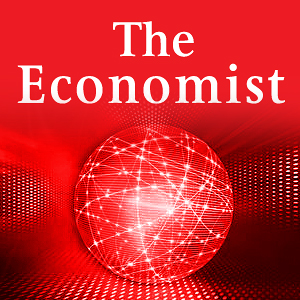- BY JUAN NAGEL
- NOVEMBER 19, 2014 – 05:13 PM
When the late Venezuelan strongman Hugo Chávez came into power in 1998, he saw in his movement an answer to capitalism and a solution to Latin America’s soaring inequalities. Chávez’s aspirations were clearly global, and he even had the gumption to list “preserving life on the planet and saving the human species” as part of his 2012 election platform.
For a while, it seemed as if all of Latin America would catch the chavista wave. But though voters in Bolivia, Ecuador, Argentina, and Nicaragua elected governments that shared Venezuela’s ideology and outlook, the wave seemed to die down toward the end of the 2000s.
Now, it seems to be rising in the unlikeliest of places: Spain.
Recent poll numbers in Spain suggest that Podemos, a new left-wing party with deep ties to Venezuela’s government, is now the most popular party in Spain, polling better than the two parties that have dominated Spanish politics since the late 1970s. The party was founded by a group of young, left-wing political science professors from the Universidad Complutense de Madrid. They seek to capitalize on the indignant movement, a disorganized group of mostly left-wing citizens not unlike the “Occupy” movement, that held massive protests against the Spanish government’s harsh austerity measures in 2012.
The movement came as a result of Spain’s profound economic crisis. The European nation and NATO member is only now beginning to emerge from recession, but its citizens have been suffering for years. Even though the economy is improving, the unemployment rate is still at a painful 24 percent, while unemployment for young people hovers around 50 percent. It is no wonder that citizens are desperate for something different — and Podemos, with its combination of left-wing rhetoric and young leadership, fits the bill.
The party was registered in January of this year, and found success quickly. In the European elections in May 2014, it surprised pundits by winning 8 percent of the total vote and five seats in the European Parliament, including one for its founder, the charismatic, ponytailed Pablo Iglesias. (The photo above shows Iglesias greeting supporters at a party meeting on Oct. 18.)
Iglesias and his two main allies, fellow academics Juan Carlos Monedero and Íñigo Errejón, have deep ties to Venezuela’s government. There are extensive financial links between the leaders of Podemos and the Chávez government. These men also worked with the Venezuelan leadership for a number of years on everything from “corruption” to “social security,” and on a variety of projects involving Venezuelan state TV, the Interior Ministry, and the Central Bank of Venezuela — institutions with questionable democratic credentials. Monedero, for his part, has lived in Caracas on and off for the last 10 years, advising Hugo Chávez personally and frequently appearing on state TV.
There are numerous videos on YouTube where Monedero advances his idea that Chávez was building a democracy on the basis of popular will while his opponents were intent on destabilizing it. At one point, he even calls the Venezuelan opposition “indecent.” A year ago, Errejón appeared on state TV denying that Venezuela was on the edge of collapse, and expressing his belief that the South American nation is possibly the world’s “most democratic” country because of the frequency of its elections. Iglesias has also made the rounds on Venezuelan state TV to praise Venezuelan “democracy.”
Iglesias’ take on Spain’s deep economic crisis pulls its strategies straight out of the Chávez playbook. He believes the poor state of Spanish democracy can be attributed to the fact that the European Central Bank acts with little regard to the policy preferences of sovereign nations. He rails against capitalism, and says that Latin America offers an example of how to fight against it. He has said that he is “envious” because Venezuelans live in an “exemplary” democracy, even though Venezuela scores poorly on many indicators of democracy. He has railed against private media outlets, while lionizing media reforms in Ecuador, Argentina, and Venezuela, all countries where governments have moved to place stringent limits on the freedom of the press.
On the economy, Podemos clearly supports more state intervention. It has come out in favor of a 35-hour workweek, a freeze on firings in companies that are turning a profit, and maximum and minimum wage legislation. Meanwhile, they hedge their pledges by saying that they do not wish to exit the Euro, claiming that they will not copy Venezuela because it “is not a model for Spain,” reassuring Spanish voters who view Venezuela with disdain that they have nothing to worry about.
Regardless of the distance they want to put between themselves and the chavista revolution, chavismo is strikingly evident in most of what Podemos’ leaders say. For example, Iglesias, upon being sworn in as a member of the European Parliament, vowed to respect the Spanish Constitution “until the citizens of his country change it.” The move had more than a trace of Chávez in it. When the Venezuelan was sworn in for his first term, he also swore on a “moribund” constitution while at the same time vowing to change it, all in the name of “democracy.”
Podemos’ approach to the Constitution directly parallels the rise of chavismo in Venezuela. Chávez began the process of reform in Venezuela by dismantling the institutions that the public saw as corrupt. The system in Venezuela was evidently broken, and Chávez used his initial popularity to do away with the old system and build a new one tailor-made for his movement. Popular approval of most of his reforms in frequent elections gave his changes the legitimacy they needed. Fifteen years after Chávez was first elected, Venezuela is mired in civil unrest and economic turmoil. Its democracy is severely eroded, and the chavista elite is deeply entrenched.
Like Chávez, Iglesias has sworn to open the doors to a “constitutional” process that undoes the “locks” of the 1978 Constitution. His justification is Spain’s dire economic situation, which he blames on “oligarchs.”
Spain’s next general election is currently scheduled for December 2015, and Podemos’ road ahead will not be smooth. Yet the rise of an anti-status quo, populist party should not come as a surprise. Economic and political collapse has sometimes paved the way for radical, heavy-handed autocrats in places as different as Venezuela, Russia, or even Hungary. These leaders then use their popularity to upend institutions and undermine the principles of liberal democracy.
Spanish voters are justified in their anger, and they may decide to give Podemos a vote of confidence in spite of the doubts they may harbor. One has to wonder, though, if they understand what they are getting themselves into.
Juan Nagel is the Venezuela blogger for Transitions, editor of Caracas Chronicles, and author of Blogging the Revolution. Read the rest of his posts here.
DANI POZO/AFP/Getty Images

































